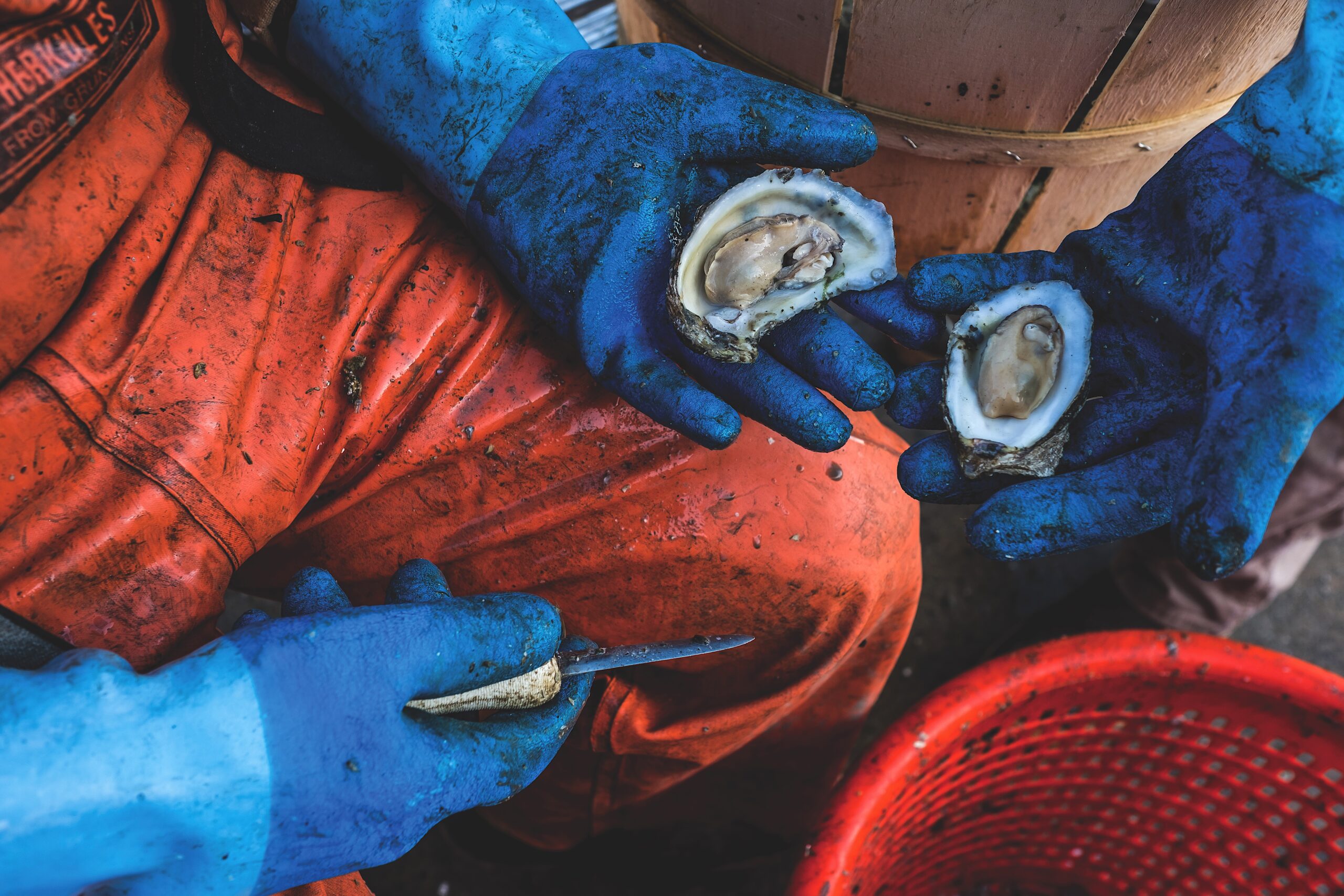Catching up with John Mallette
The Untold Stories of African Americans in North Carolina’s Seafood Industry
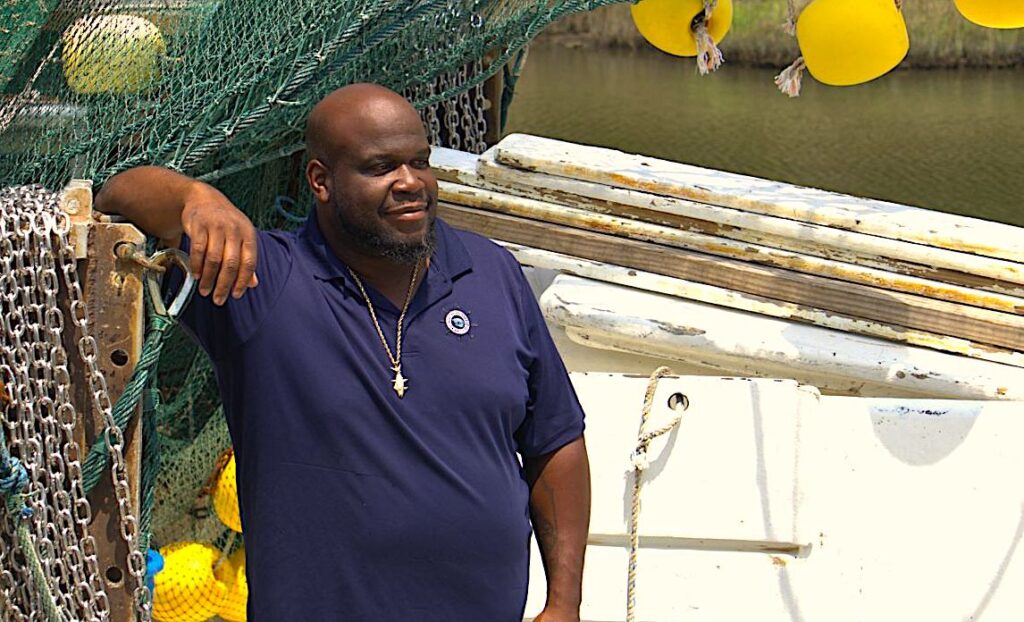
“As long as I was around a boat and I was on the water, I really didn’t care about anything else.”
Good luck catching up with John Mallette. He’s all over the map, literally. If he’s not out captaining a charter boat or fishing commercially, he’s likely making seafood deliveries along the coast. When we chatted in early April, he had a day of deliveries ahead of him, from New Bern to the Triangle. And the next day, he’d head down to Charleston, South Carolina, to continue his deliveries, all before cooking for a large dinner party two days later.
It’s hard to document what a typical day looks like for Mallette. The co-owner of Southern Breeze Seafood wears many hats. Since he opened the company four years ago in Jacksonville, he and his co-owner, Randy Millis – a fifth generation commercial fisherman as well as a lifelong friend – have specialized in selling fresh, sustainably-caught seafood and related products (like breaders and seasonings) to wholesalers and directly to customers.
Mallette also has embarked on a project alongside Barbara Garrity-Blake – a cultural anthropologist who teaches marine fisheries policy at Duke University’s Marine Laboratory – to highlight the rich history of African American contributions to North Carolina’s seafood industry.
For Garrity-Blake, who serves as chair of the board of directors for NC Catch, the stereotypical fisher as an older white man in yellow rain gear obscures how so many different people have influenced the industry – working on boats, owning and operating restaurants, and more.
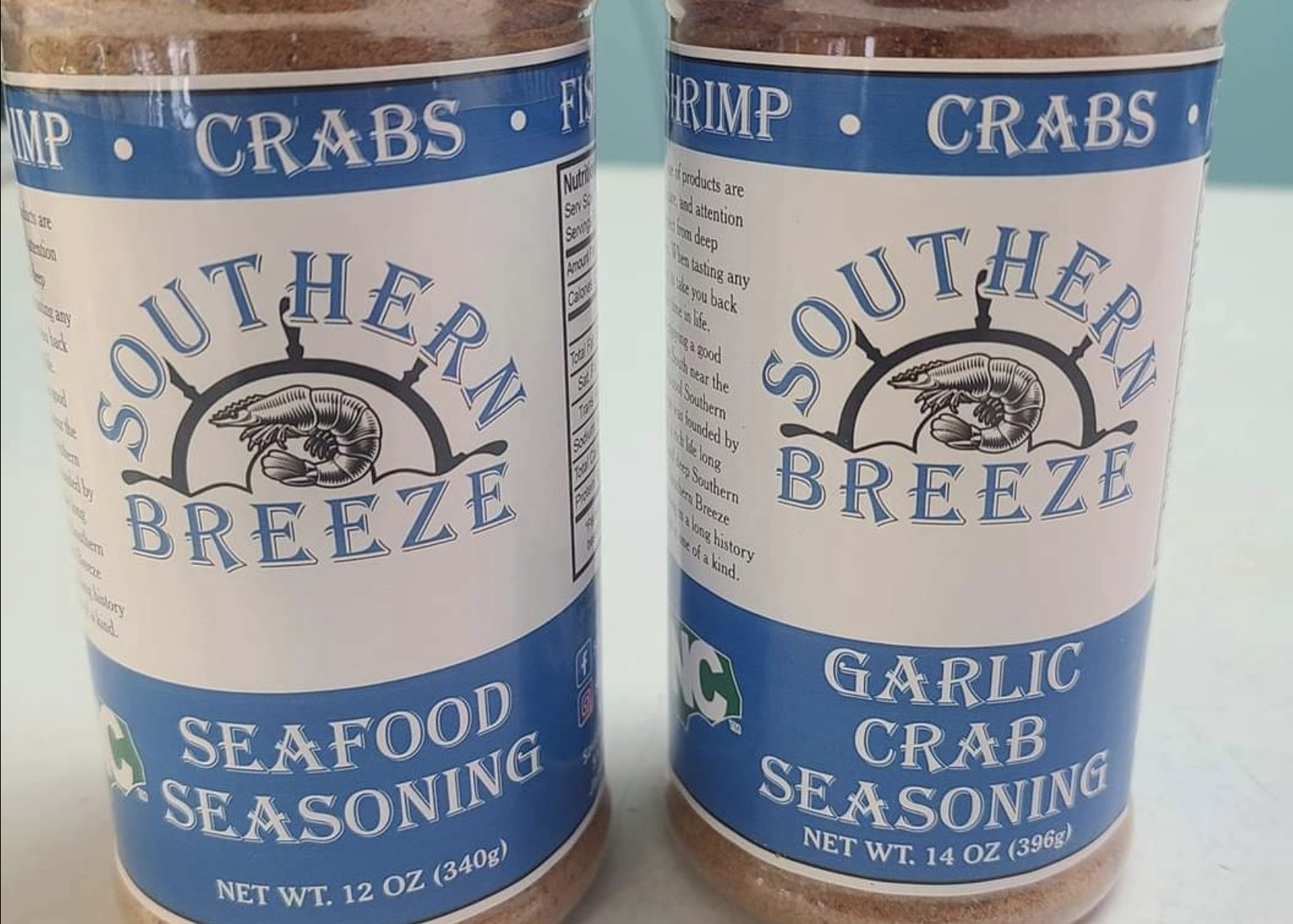
Storytelling in Fishing Communities
“John Mallette is the reason for this project,” says Garrity-Blake.
The two met at a festival in Morehead City, where Mallette was doing a fish cutting demonstration. Together, they devised their project, which the Community Collaborative Research Grant (CCRG) program supports. North Carolina Sea Grant – in partnership with the North Carolina Water Resources Research Institute and the Kenan Institute for Engineering, Technology & Science – provides the program, which facilitates collaboration between researchers and local knowledge experts.
Mallette says others have approached him about similar projects in the past, but he had always turned them down. To him, what separated Garrity-Blake’s project from the rest was a focus on storytelling as a means of interacting with participants and gathering information. This approach placed emphasis on providing context rather than extracting and isolating data in a traditionally-academic project.
“I wanted this to be truly a collaborative approach,” says Garrity-Blake. “And I wanted to honor the storytelling traditions that are so important not only within African American communities but the fishing communities.”
Mallette’s own story is an anomaly in many ways. He’s a Black man with decades of experience in the seafood industry, which he wound up in by chance when he was a child. Growing up along the coast in Ocean City, he didn’t have family in the business, but his babysitter and her husband owned a seafood market and tackle shop, where they introduced him to the arts of shrimping and crabbing.
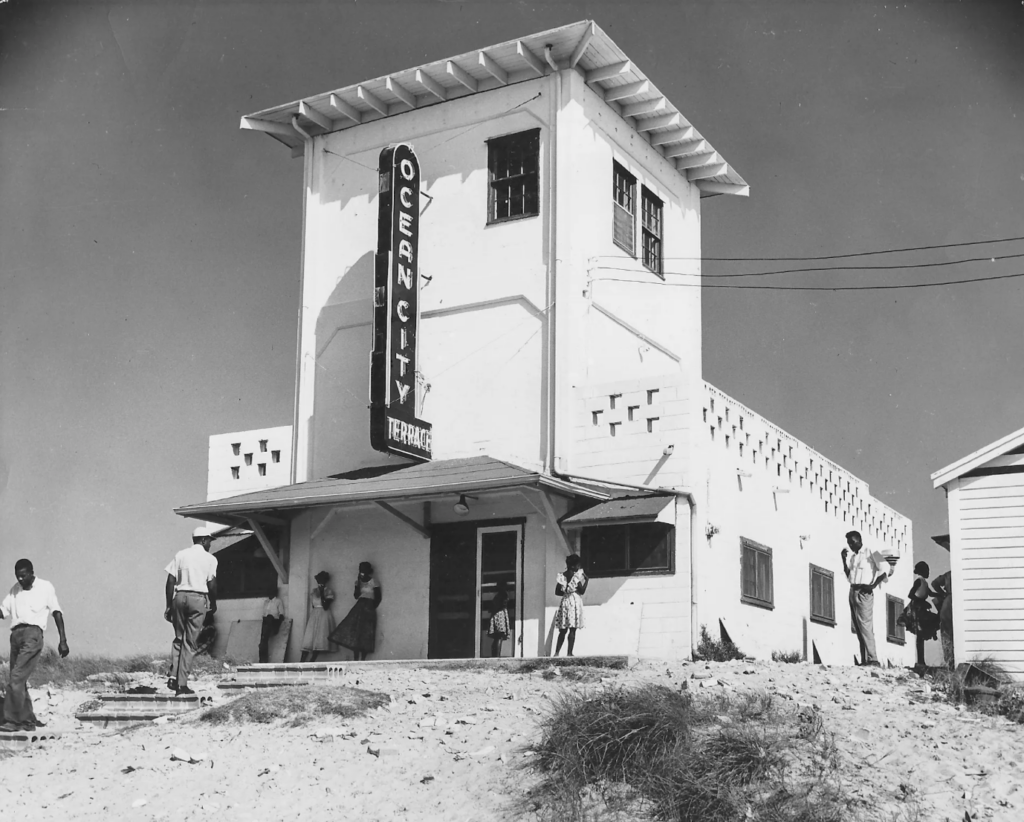
And he had quite a knack for it, earning the nickname “Fish Man” as a young kid. “As long as I was around a boat and I was on the water,” he says, “I really didn’t care about anything else.”
Childhood fun blossomed into a career that took him up and down the East Coast and eventually around the globe. He ran multi-million-dollar sport fishing boats for tournaments and chartered boats from Central and South America to Hawaii – and even into the Great Barrier Reef in Australia.
Since moving back to North Carolina in 2008, Mallette has fished and chartered boats but now works most often on the commercial side of the seafood industry. He sells retail and wholesale and recently signed a deal with Aramark – a food service and facilities services provider – to bring Southern Breeze Seafood’s food products into university cafeterias across North Carolina, Maryland, and Virginia.
Challenging Assumptions and “Straight-up Lies”
Mallette says many people know too little about the fish they’re eating, like where it comes from and how it was harvested. This lack of information is often coupled with what he calls “straight-up lies” about seafood, something he has no problem pointing out: “I only want to call out misinformation. I don’t care if you like it or not, I’m just telling you how it is.”
His work with the North Carolina Department of Agriculture & Consumer Services, including their Got to Be NC initiative – which promotes North Carolina grown and harvested agriculture and seafood – helps combat this misinformation. He often leads “pop-ups” and cooking demonstrations, teaching people about local, sustainable seafood available through North Carolina businesses.
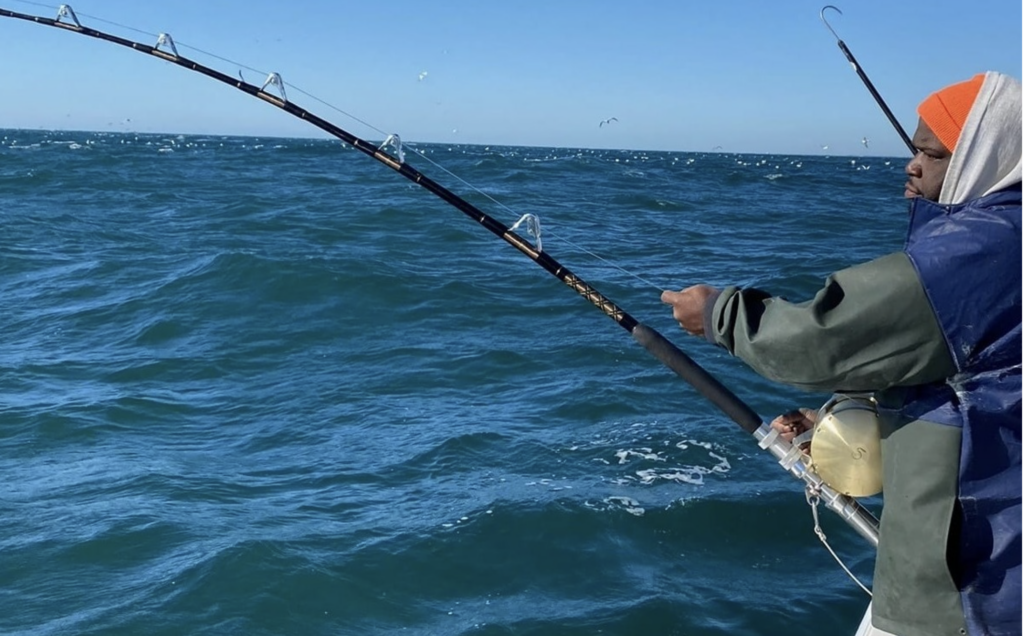
Unfortunately, a lot of these events take place only on the coast, not always reaching a diverse audience. According to the North Carolina Office of State Budget and Management, African Americans make up only about 15% of the total population of North Carolina’s 20 counties bordering the Atlantic.
This shouldn’t come as a surprise. African Americans in North Carolina couldn’t own oceanfront property until 1949, when the Ocean City community became the first coastal area in North Carolina where Black residents could vacation and purchase property. Mallette’s father was an initial developer of Ocean City and belonged to one of the first families to settle there.
Given North Carolina’s past, what would project participants tell Garrity-Blake and Mallette about barriers to entry for fishers, wholesalers, and others in the seafood industry? What particular challenges and obstacles have Mallette and other African Americans faced?
Mallette can draw on examples of buyers not wanting to buy his fish specifically or trying to “play me like I’m dumb or not as good,” something he believes might or might not have to do with his race. But, he explains, “there’s so much more to the exclusivity” beyond these interactions.
As Garrity-Blake and Mallette interviewed participants, the information pointed to overtly race-based challenges and barriers – but not resoundingly. Instead, the interviews found something more covert.
Mallette told me that he had never known an instance when a person with the necessary skills – no matter their race – was denied a job in the industry. But obtaining those skills was not always possible for Black residents.
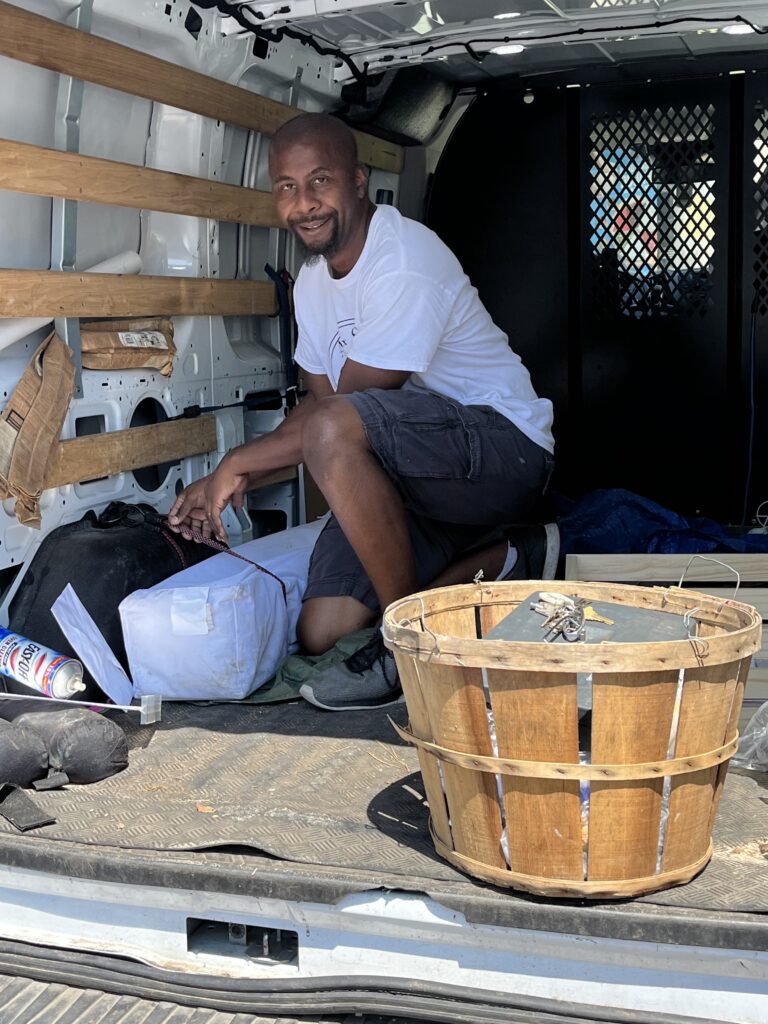
Mallette says a particular stereotype also has confounded the problem: the unsuitability of African Americans to swimming and other water activities. On one hand, this stereotype makes him laugh, but he knows its impact.
“The grandmas used to always say, ‘Boy, don’t you get on that water. You know that ain’t for us.’”
According to the U.S. Consumer Product Safety Commission, two-thirds of Black children, “have no or low swimming ability.” This doesn’t reflect any actual aptitude for swimming, but as Mallette and his peers learned dissuading messages about all aquatic activities, their access to Black fishers, mariners, and others was limited at best.
“It was like, if you didn’t see it, you would just automatically assume that you don’t do it,” he says.
Exposure to the outdoors, he adds, specifically seafood and fishing, can help so many people to develop life skills that promote independence and self-sufficiency.
“Even though I’m only 44 years old, I’ve got people booking charters with me that remember me taking them fishing when they were kids. Now they’re bringing their kids,” he says. “Get this stereotypical fear of water or the outdoors or the woods or anything in general out of their mind, and go try it. And then it would blow their minds, because ‘I’ve done it,’ you know?”
That said, the seafood industry can be “clanish,” according to Mallette. If you don’t know someone, he says, it’s unlikely you’ll buy from or sell to them, because there’s no existing trust between parties.
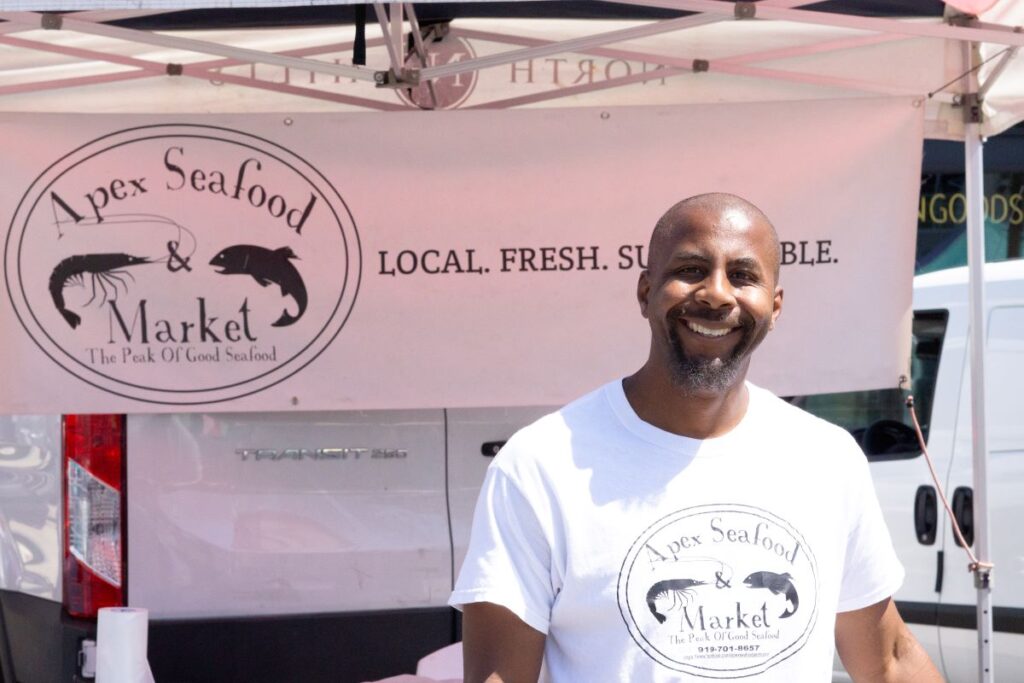
Tyrone Hightower, who participated in the project, can speak to this. After working as a veterinary assistant for over 20 years, he shifted careers. With his unique knowledge of and experiences with aquatic creatures, he hoped to bring fresh, local seafood to North Carolinians living inland.
But with no connections or experience in the industry, it was difficult to source the seafood he wanted to sell to customers. With time – and the help of a seasoned vendor – Hightower learned how to use “fisherman’s language” to integrate into the industry.
Still, he faces unique challenges as an African American seafood seller, sometimes noticing higher prices when he sources seafood compared to his white counterparts.
Hightower told NC Catch that, “there’s not a lot of faces that look like mine in the seafood industry,” but seeing prominent people like Mallette has helped remind him he’s not alone.
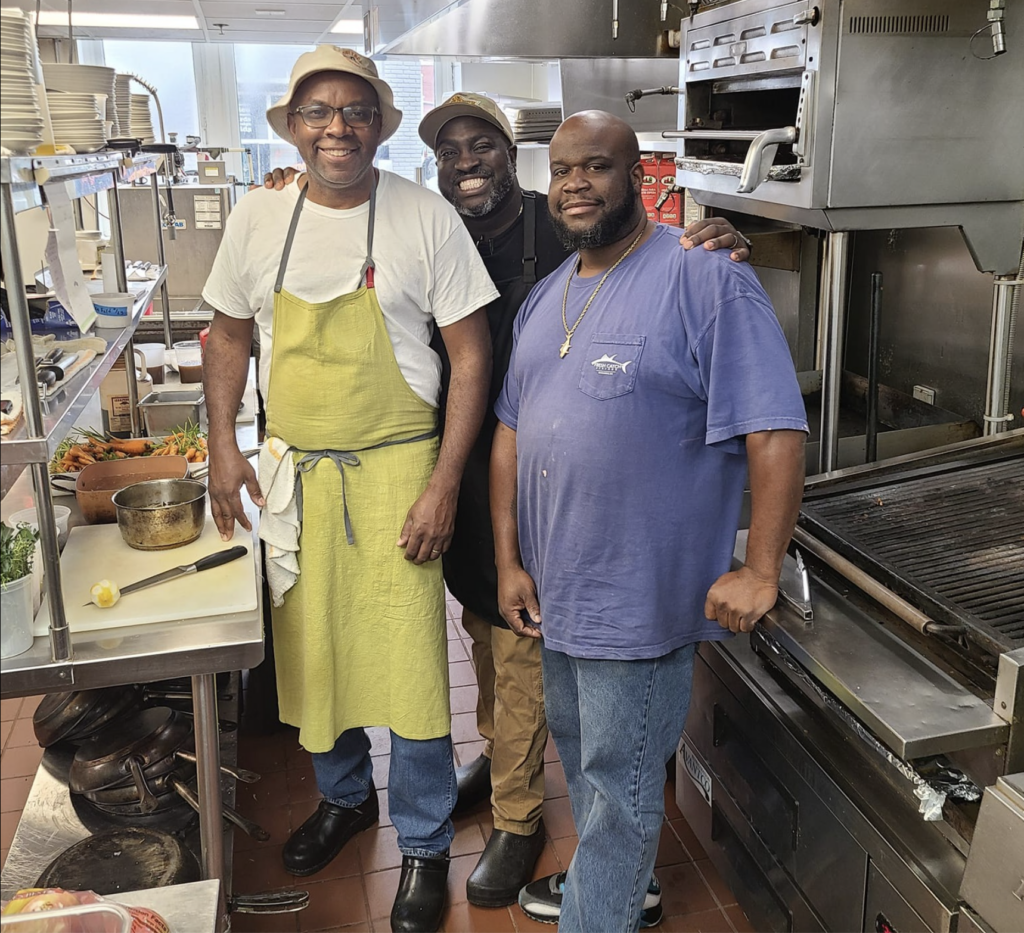
Reaching People Through Their Stomachs
Mallette juxtaposed the experiences of consumers in predominantly white and Black communities in Wilmington: People in white communities often have immediate access to fresh, local shrimp, tuna, and other seafood in their seafood markets and grocery stores, whereas people in African American communities are sold imported seafood, like croaker, that’s often mislabeled as local.
He and Garrity-Blake say this “gastroeconomical racism” highlights the inequities that people of color face in accessing fresher, healthier foods – as well as information about these products. “Food deserts,” areas without easy access to fresh and nutritious foods, are symptomatic of gastroeconomical racism.
But why should anyone have to settle for imported products shipped halfway across the world when North Carolina can offer a fresher alternative?
“Because there’s no education to that demographic of people buying the seafood,” says Mallette. “They don’t know any better.”
He and Garrity-Blake hope to teach the next generation the importance of local, sustainable seafood options. And there are countless fishers, seafood buyers and sellers, chefs, and others who – with a platform to tell their stories and speak to their successes – can show Black youth that the seafood industry is accessible to them.
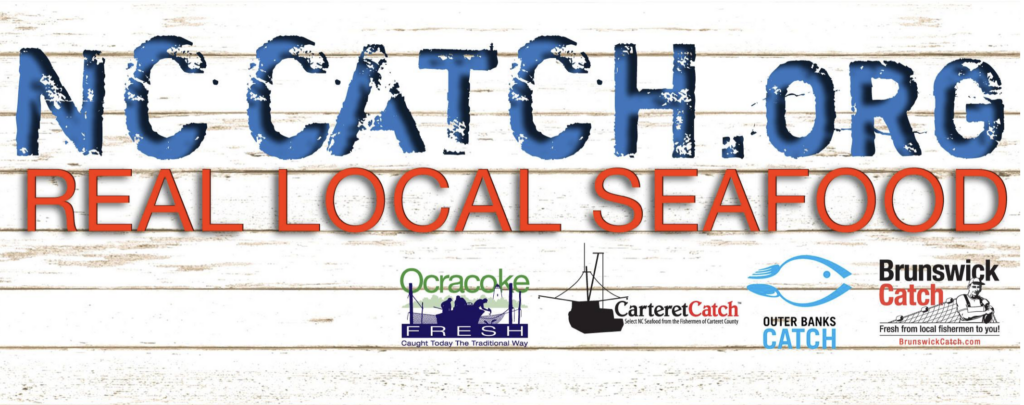
Mallette and Garrity-Blake’s project already has collected and transcribed oral histories, which will become an exhibit at the Core Sound Waterfowl Museum in Harkers Island. But they also want to take this exhibit on the road.
“If we really want to make a difference and help foster empathy,” says Garrity-Blake, “we have to take it to the people.”
Through public events spotlighting their exhibit, Garrity-Blake and Mallette hope to break bread, both literally and figuratively, at events across the state, hosting panelists who share stories about their experiences as Black fishers, seafood dealers, and more. Panelists will include key figures in the industry, like chef Jamie Davis of The Hackney in Washington and chef and restaurant owner Ricky Moore of Saltbox Seafood Joint in Durham, who will engage audiences through cooking demonstrations and other activities.
“My personal goal is to make lasting impressions,” Mallette says. He plans to speak at North Carolina Central University – just one of the many universities that will use his breaders and other fresh products. The university’s executive chef wants Mallete to directly educate students about sustainable seafood.
As Mallette reels in college students, Garrity-Blake next will be interviewing an African American husband and wife crabbing team from Hertford, a couple that Mallette introduced to her. “I love the blood, sweat, and tears that people put into commercial fishing,” she says.
Not surprisingly, both Garrity-Blake and Mallete are seafood lovers, too. For her, a charcoal mullet grilled scale-side down does the trick, and “the oilier, the better.”
For Mallette, it’s old school shrimp and grits.
“Pan fry your shrimp, make a gravy with the grease, and top it with some cheese and butter,” he says. “I could eat that every day and twice on Sundays!”
More
Learn more about the Community Collaborative Research Grants program.
Learn more about NC Catch’s Chef Ambassadors and NC Catch’s coverage of this project: “Recognizing African American Participation in the North Carolina Seafood Industry.”
Learn more about the history of Ocean City.
One of the goals of Barbara Garrity-Blake and John Mallette’s Community Collaborative Research Grant project is to bring more visitors to NC’s African American-owned and/or operated businesses, like these :
Apex
● Apex Seafood & Market
● The Fish House Eatery
● The Fish House Seafood Market
Asheville
● Good Hot Fish
Carolina Beach
● Soul Flavor
Cary
● Skrimp Shack
● TrySeaFood
Charlotte
● Bryant Seafood Market
● Freshwaters Restaurant
● Jimmy Pearls
● LuLu’s
● Mr 3’s Crab Pot
● Skrimp Shack
Durham
● Bull City Eatery
● J&J Fish & Chicken
● Saltbox Seafood Joint
● Sho Nuff Seafood
● Skrimp Shack
● T-N-T Fish & Chicken
Fayetteville
● Krab Kingz
● NY Supreme Steamers Seafood Market
Freeman
● Livingston Creek Farmers Harvest
Greensboro
● Seafood Destiny
● 42 Fry
Greenville
● 42 Fry
Harkers Island
● Oysters Carolina
Havelock
● Te’Asha’s Kitchen & Grill
High Point
● Harbor One
Holly Springs
● Skrimp Shack
Jacksonville
● Southern Breeze Seafood
● The Spot Florida Style Seafood
Mooresville
● Buddy’s Seafood Market
Ocean Isle
● Vaught’s Seafood
Raleigh
● Baton Rouge Cuisine
● Capital Seafood Market
● Jack’s Seafood and Soul Food
● Oak City Fish & Chips
● Sarge’s Shrimp and Grits
● The Shrimp Truck
Winston-Salem
● Forsyth Seafood Market & Café
Wilmington
● Catch
● On Thyme Restaurant
● Smokin’ Jimmies Chicken & Seafood
● Truck’s Chicken ‘n Fish
Carrie Clower is a contributing editor for Coastwatch and a science communicator for North Carolina Sea Grant. She holds an M.A. in communication studies from The University of Alabama.


